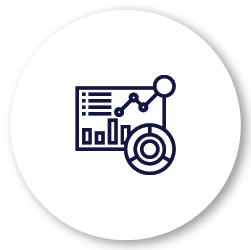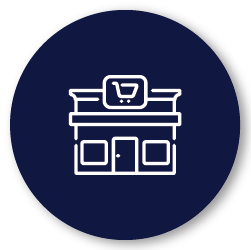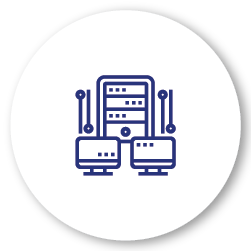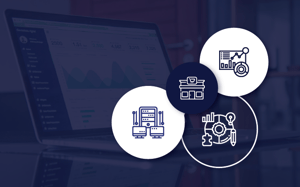Every retail organisation generates data in one form or another. That's a given. It could be information collected through your point of sales, through your procurement processes or from your loyalty card programme. The collection of this data is critical. However, it's only one aspect. It's just as vital that you know how to analyse it.
For that, you need a robust data analysis tool that will help you to answer pertinent questions about your business. Whenever a conversation turns to data analysis tools, another should also follow: how do you plan on getting value from your chosen tool?
If we were to answer, we would put forward the argument that expertise is critical. In this piece, we’ll explain why we’re so confident in our answer.
About the contributors
Erin Hodgson joined DotActiv in early-2019, quickly establishing herself as the go-to expert on clustering in the business. This saw her promotion to Cluster Development Manager in late-2019. With her assistance, DotActiv has developed powerful cluster optimization software which works seamlessly with the rest of our all-in-one category management software.
Ilze Klopper joined DotActiv in 2018 as a shelf planner, working on the Amka account. Here, she is responsible for all the business analytics on all categories. Ilze is currently working on the development of Custom Reporting Templates within DotActiv Software.
Kyle Fanner joined DotActiv in 2016 as a retail space planner. He has since worked on various accounts before being promoted to an account manager. Today, he looks after various ad-hoc accounts as well as our Scanners team.

Expertise is critical when analysing product categories
Data science is an up and coming field, and its role in helping your business to compete is more important than ever. You may already be aware of just how effective it is. Back in 2018, McKinsey published an article on how it would drive next-generation retail merchandising.
Today, you can use it in just about any aspect of your business, points out Fabrizio Fantini, CEO of Evo Pricing, which offers predictive pricing and predictive supply chain services.
Making informed decisions, rooting out problem areas, or discovering new opportunities are just a few of the benefits of efficient data analysis.
Having access to the relevant information or data is just the first part of this crucial process, as we already mentioned. Using the data in a way that will be beneficial is often the tricky part.
When it comes to analysing your product categories, category growth and decline are common questions that come to mind. But, what are the factors that affect this growth and decline? And can these factors be influenced?
Data experts are well equipped to answer just these sorts of questions and more. With their wealth of knowledge and experience accumulated through precision training and exposure to various retail environments, they’ll know what to look for in your data. More importantly, they can provide advice on how to tackle the issues that you face. Or explain where you need to improve.
Let’s say, for example, that you're a supplier looking to ensure that the shelf space given to you by your retail client reflects your market share.
In that case, you can refer to an expert, such as DotActiv, who can build a data-driven planogram with your market share as the key driver. Because we have the tools, knowledge and expertise, we can deliver a report comparing your current space versus the space you deserve.
Using that information, you can negotiate your stock levels based on the stock turn driven by the planogram capacity per SKU. The result benefits you both. You win because you get more space for your products. Meanwhile, your retail client can offer more of the products that their shoppers want. It also improves the relationship that you have with them.

What category management questions should you be asking?
When deciding which category management questions to answer, you first need to look at what you want to achieve as a business.
Once you know that, matching it to specific category management questions is easy. That said, there are also a few core questions that you do need to ask, regardless of who you are.
These include:
- Which of your categories show growth/decline and why?
- How productive are your shelf and floor space?
- Who is your target customer and what is their behaviour at a category level?
- How is each of your store clusters performing? (If you have stores in different areas/regions).
- Which of your SKUs are underperforming and why?
Let's unpack this one as an example: How productive is your store space?
The question itself is critical simply because the answer enables you to influence and control your future productivity. You may be making costly mistakes, such as overinvesting in stock that is not moving as expected. That results in tying up cash that you could use elsewhere in your business. It can also have a knock-on effect on your supply chain since you can hold units of a product that does not sell and may reach its expiration date before selling out.
It’s just as critical to understand the performance of your store clusters. The value and depth of information that specialists can extract from answering such a question lead to many benefits.
You could understand the geographic purchasing patterns of your consumers in that specific area. You can stock products that are appealing to that area of stores and plan your logistics to be cost-effective and sustainable.
Trying to answer this question will also provide you with valuable insights into how much stock you require, in what quantities, and in what time frame. The answer can help ensure that your supply chain is more efficient and productive.
And let’s not forget the importance of understanding the needs and purchasing behaviour of your customers.
Understanding your consumers plays a significant role in increasing the profitability of your business. Consumer psychology helps, and especially if the third-party company you use hires people who are specialists in this field.
Floor planning, product placement and ranging of products may seem like generic tasks. However, there is a specific and detailed process that such specialists follow to ensure everything is as efficient as possible.
They consider the movement of shoppers, placing products in appealing and strategic positions and the most efficient display of these products.
Think about this; would you be drawn to a new product with only one unit on display? Or would it excite you to see a well-designed shelf that has enough facings on display to make you aware of its presence?

How can you best present these answers in a data analysis tool?
Having the correct data analysis tool is one of the most helpful and reliable ways of ensuring the information you receive is accurate, reliable and meaningful. Meanwhile, using a tool specifically tailored to the retail industry - and using it correctly - opens up a world of new opportunities.
The time factor is an obvious advantage, where you can process your data in a fraction of the time compared to traditional methods. Having access to DotActiv software with a specialist behind the scenes, the possibilities are endless.
Knowing exactly which metrics to use for the required information is second nature to a category specialist. They can analyse any data at multiple levels such as a category, subcategory, segment and SKU level.
Functions available include shelf planning, floor planning, cluster optimization and product ranging just to name a few.
Reporting is easier than ever, whether it's product reports, shelf reports, performance reports or customised reports. Customisation has been enhanced with the ability to view categories and products on various “drill down’ levels. This makes it possible to look at the information on the desired level of focus.
For example, you may want to see how specific SKUs perform or want to compare your house brand to the category leaders.
You can also uncover valuable insights and information through preset or customisable dashboards. What does this mean? It means you can process the data so it's easy to read by the people who need to understand it.
The best part is its user-friendliness and compatibility. You can link your dashboards to multiple data sources such as CSV files, databases, floor plans, planograms and data cubes. This fully integrated approach provides a wealth of new information on its own once linked together. By focusing on the details of your business, you can improve on a larger scale.
Conclusion
The next time you think about your retail data, think about a more efficient way to extract value from it. More importantly, don’t believe that you need to do this on your own.
Are you interested in partnering with specialists who can help you to be more efficient with your data and extract valuable insights? Visit our online store here for more information or book a custom exploratory consultation.


